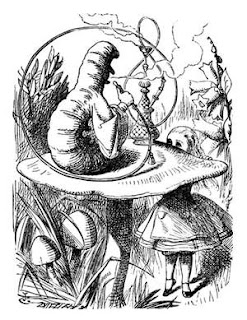Well, that's not exactly reassuring, is it?
Inda ended up delaying the cabinet announcement for ages because Labour were having a storming row over who got to plant their arse in ministerial mercs, and when he did announce the line up, it was a total dog's dinner.
To borrow a sporting analogy, it would be like playing Robbie Keane as goalkeeper, Shay Given up front, and dropping some of the best players.
In fact, it looks as if Enda got them to play a game of musical chairs, and then, when the music stopped, told whoever had their arse on a seat to reach underneath and open the envelope to find out what their brief was.
Let's go through it post by post, shall we? G'wan then.
Taoiseach - Enda Kenny. Not much can be done about that. In an ideal world, it would be
Gilmore or Bruton, but there you go. Kenny it is. Ah, well. Keep calm and carry on.
Foreign Affairs - Gilmore.Was always going to claim a plum job for himself and Iveagh House is notoriously an easy ride. But he's not the most diplomatic of people, nor the most outward looking. (In fairness, not the worst either.)
Who should be doing the job?
Ruairi Quinn or Richard Bruton. Both are well known internationally and usually smooth operators. Plus, we badly need someone with financial know-how to deal with the pressing issues coming at us from Brussels.
Finance - Noonan.Well, he may have performed well during the election, but he's still a poor third option (if not fourth) behind Quinn,
Bruton and probably Joan Burton too.
This is his reward for the election work and the negotiating work. Let's hope he doesn't fuck it all up like he fucked Fine Gael's electoral chances up for a decade.
Public Service Reform - Howlin.WTF? I mean seriously, what the fuck? This is so wrong on so many levels. After doing the heavy lifting of ensuring that there WAS a public sector reform minister, Fine Gael seriously dropped the ball here. Looks like they gave the post to Labour after claiming Noonan for Finance, expecting Joan Burton or Quinn to take it.
Instead, for some reason fathomable only to internal mandarins within Labour, they've put a beard in charge of the beards. This will not work, frankly. There won't be any successful reform.
If FG had been smarter, they'd have ceded Finance to Quinn or Burton, and then put
Noonan in this role and watched him do the business.
Justice, Equality and Defence - Alan Shatter.Great call, albeit somewhat expected. The only downside of this that I can see is that he's not an obvious bedfellow of the military. Perhaps this means cuts there, I don't know.
What he will hopefully do is bring in a raft of legislation that will address some of the areas that Fianna Failure dismally forgot to deal with, from the long-awaited children referendum, to fathers' rights to increased prison tarriffs for burglary, theft, personal assault and petty crime.
Social Protection - Joan Burton.About the only good thing you can say about this decision is that she couldn't do worse than Coughlan. No one could. Joan didn't want this job, won't like it and is probably seething she's been given it. It's so crass and obvious giving the 'caring' ministry to a woman also.
I'd have liked to see something bold done with this ministry. Leo Varadkar, perhaps, or
Pat Rabbitte. Someone who could bring new ideas to how welfare should work without mindlessly cutting.
Health - Reilly.Was never going to be anyone else. He's nailed this portfolio down for a long time. Now let's see can he kill the HSE dragon and if he'll refrain from sparing his doctor pals the hard lessons of recession and reform.
Children - Frances Fitzgerald.Why is this a ministry? Why not a ministry for women, or men, or old people, or ... You get my point. What's so effing special about kids they need a full cabinet minister? Sure, Frances has all the right touchy-feely credentials, but I really fail to see what is going to be achieved with this.
Education - Ruairi Quinn. Not the worst decision, but a waste of Quinn's talent in my opinion. I'm glad a schoolteacher didn't get the job, but this might have been a good role for someone like
Simon Coveney or Leo Varadkar.
I expect Jan O'Sullivan wanted this one. We might have ducked a bullet there. O'Dowd was the FG spokesman recently. Another bullet ducked, I suspect.
Enterprise - Richard Bruton. Well, at least he made cabinet. It frankly makes no sense that he's not in Finance. I expect he'll do a decent job here, but Quinn, Burton or even Noonan or Varadkar could have been given this one.
Personally, I'd like to have seen
Burton in it, as she might have put some manners on the likes of IBEC.
Transport, Tourism and Sport - Leo Varadkar. No, that's not a list of three things Leo knows very little about, apparently he's now the minister. And Jesus wept, is the next verse, I believe.
If Howlin had to have a cabinet job, this is one he could have held down nicely. He has that leprechaun look that Bord Failte love, decent GAA and sporting connections, understands the need to develop transport OUTSIDE the Pale and would have been unlikely to fuck any of it up.
Though to be honest, Jimmy Deenihan, Michael Ring or Willie Penrose might have been decent picks too.
Environment, Community and Local Government - Phil Hogan. Again, this smacks of having to accommodate him in there somewhere. This actually IS an area that
Howlin knows about and this is where he should have been sat.
Arts, Heritage and the Gaeltacht - Jimmy Deenihan.Give the culchie brief to the culchie, is it? Deenihan would have been better in sport. Though to be honest, I don't see why he's in the cabinet really. I tend to find that the more rural the minister, the less arts and heritage gets dealt with and the more money is diverted into the Gaeltacht.
Since FG intend to end mandatory Irish in schools, presumably Deenihan is here to keep the language mafia quiet with endless grants, at the expense of arts funding and heritage protection. This should have gone to a Dub, ideally
Frances Fitzgerald or Roisin Shortall.
Communications, Energy and Natural Resources - Pat Rabbitte.Well, since none of the available candidates are going to take an axe to ESB wages, fibre the country overnight or nationalise our oil and gas fields, in the most important matters, it frankly doesn't make a difference who took this brief. Rabbitte's well able for it, but it's not the best use of him. Another talent playing out of position. This might have been a good role for
Fergus O'Dowd, who at least understands communications. Coveney would have been an excellent pick, though.
Agriculture, Marine and Food - Simon Coveney.Obviously Farmer Gael were always going to claim this one for themselves. Would have been immensely entertaining to see an urban Labour minister though, just to put manners on the endless begging bowl tactics of the IFA.
Rabbitte would be my ideal pick here. Sure, we'd see the odd tractor convoy on the M50, but it would be a small price to pay for dealing with the farmers, the fishermen and the cute hoorism of Tesco with alike disdain.
For a less abrasive and more blueshirt friendly option, Michael Ring would be perfect.
Michael Ring, ffs. Perhaps Inda prefers having him doing the constituency chores. Waste of talent again.
Super Junior at Environment in charge of Housing and Planning - Willie Penrose.If the rumours that he spat the dummy over not having a merc are true, he should have been kicked to the kerb, even if he is that rarity, a long-standing rural Labour TD. And if the government are serious about this role, and didn't just bump it up to accommodate Willie, then it probably should have gone to a Dub or at least someone from the commuter belt, where most of the shit in this brief is located.
What does Willie know about pyrite, or planning corruption? More importantly, what does he think he will do about it, once he stops sulking? This would have been a great role for
Leo Varadkar. He knows the issues inside-out, and would have hit the ground running. It would be a decent role for him to learn his trade in too. Another missed opportunity.
I'd have axed the Ministry for Kiddies and introduced a
Ministry for Employment too, since that is by a mile the most pressing issue in the country. That's where I'd have liked to see
Phil Hogan. The man has wide experience in covering a number of different sectors, could negotiate hard with both bosses and unions, could keep an eye on Burton if she was in Enterprise, and could put the case for Irish jobs on an EU level.











